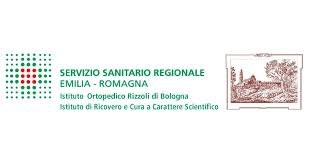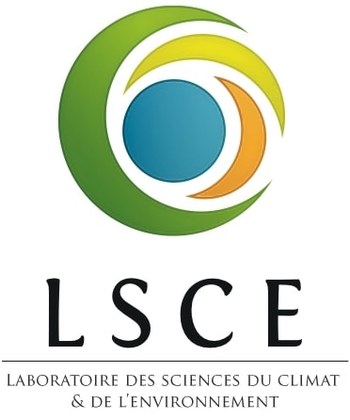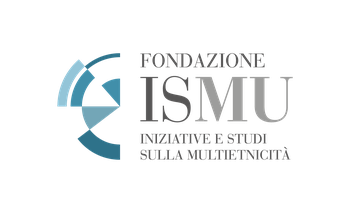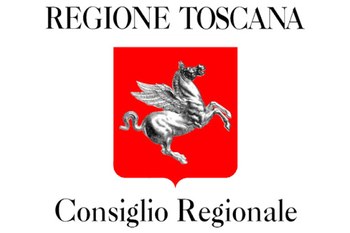Partners
In order to allow PhD students to develop skills and methodological approaches suitable for experimenting with innovative solutions and for implementing and updating analysis models, the PhD in Public GoMaP has activated some collaborations and partnerships.
IRCCS Azienda Ospedaliero-Universitaria di Bologna
Leggi dettagliThe IRCCS Azienda Ospedaliero-Universitaria di Bologna Policlinico di Sant'Orsola is a renowned hospital and the seat of the Faculty of Medicine and Surgery at the University of Bologna. It serves as a national and international reference center for various medical conditions. The hospital integrates hospital and university activities, providing healthcare, teaching, and research. It has 87 operating units, 1,515 beds, and a workforce of 6,807 employees. Annually, it handles around 49,000 hospitalizations and over 3,300,000 specialist outpatient services. The hospital specializes in transplantation, critical care, and the management of oncological pathologies, particularly in Oncology, Cardiology, Surgery, and Gastroenterology. It has experienced remarkable growth in scientific publications and clinical trials, with the number of publications and trials nearly doubling between 2018 and 2022. The hospital has secured over €12.5 million in funding, with contributions from European programs, targeted research, and regional funds. It collaborates with renowned institutions and countries such as the United States, the United Kingdom, and Germany. Overall, the hospital excels in healthcare provision, scientific publications, and collaborations, contributing significantly to medical knowledge and patient care.
Research project in collaboration with the Department of Economics (DSE), 2 PhD-scholarships funded by the European Union (NEXT GENERATION EU), the Ministry of University and Research, the National Recovery and Resilience Plan, the University of Bologna and by the IRCCS University Hospital of Bologna (38th cycle).
1) Operation and Value Based Management for the management of the surgical path in the IRCCS University Hospital of Bologna;
2) Institutional, organizational and financial models for the management of sponsored clinical trials in a research hospital: the case of the IRCCS Azienda Ospedaliero Universitaria di Bologna Policlinico di Sant'Orsola.
Istituto Ortopedico Rizzoli - Bologna
Leggi dettagli
The Rizzoli Orthopedic Institute is a highly specialized hospital and research facility in the field of orthopedics and traumatology. In 1981 the Ministry of Health declared the Rizzoli Institute for Scientific Hospitalization and Care (IRCCS), recognizing the high level of healthcare achieved by the institute in the orthopedic and trauma fields.
The strength of the institute is the close integration between healthcare activities (more than 150.000 annual visits, 15.000 hospitalizations, largely of surgical nature) and the scientific research activity carried out by 10 research laboratories operating at the institute, where doctors, biologists, engineers and other professional figures are employed. The institute is also seat of university teaching.
The Emilia-Romagna Region has set up the regional hub & spoke network for Rare Skeletal Diseases, which has the Rizzoli Orthopedic Institute as the regional reference center (hub) towards which requests from doctors converge from the local centers (spokes) and patients.
The complex structure of Rare Skeletal Diseases is the coordination center of this regional network for Rare Skeletal Diseases.
Research project in collaboration with the (1) Department of Economics (DSE) and (2) Department of Management: PhD-scholarships funded by the European Union (NEXT GENERATION EU), the Ministry of University and Research, the National Recovery and Resilience Plan (ex D.M. 352), the University of Bologna and from the Rizzoli Orthopedic Institute (38th cycle).
1) The role of human capital in a highly specialized context: the case of high-volume orthopedic surgery.
2) Analysis of efficiency and effectiveness of innovative organizational and management solutions for surgical pathways: the complexity of inter-company institutional structures and hub and spoke networks.
Study and evaluation of innovative models of governance and monitoring of the surgical patient's journey (39th cycle)
Department of Business Sciences (DiSA), PhD scholarship funded by the European Union (NEXT GENERATION EU), the Ministry of University and Research, the National Recovery and Resilience Plan (Ministerial Decree 117/2023) and the University of Bologna and by Istituto Ortopedico Rizzoli (position 1 of the call expiring on 08/22/2023).
Supervisor Emanuele Padovani (DiSA), co-supervisor Viola Damen (IOR)
The project focuses on innovation in governing and monitoring the surgical patient journey. Using advanced technologies such as artificial intelligence and digitized clinical data, it aims to improve the efficiency and quality of care. The objectives include (1) analysis of existing models, (2) development of an optimized model, (3) implementation of a monitoring system, and (4) impact assessment. The methodology involves literature research, interviews, data analysis, model development and implementation. Expected outcomes include identification of critical issues in existing models, development of an improved model, successful implementation and effectiveness evaluations. This project promises to improve surgical care for greater efficiency and safety.
The number of doctoral students for whom supervision on a specific topic is guaranteed is one.
The cost-effectiveness of integrated pathways for rare diseases: evidence from the Bologna Metropolitan Area (39th cycle)
Department of Economics (DSE) 1 PhD scholarship fonded by the European Union (NEXT GENERATION EU) – Ministry of University and Research PNRR ex D.M. 117/2023 and Rizzoli Orthopedic Institute
Supervisors: Francesco Paolucci (DSE) and Luca Sangiorgi (IOR)
As part of the Regional Project for Rare Diseases in the Emilia Romagna Region, a Hub and Spoke model has been developed to strengthen regional networks for specific diseases by involving local facilities. In this contest, in the Bologna Metropolitan Area a network that involves the 4 major hospital and all the services has been established by the Conferanza Territoriale Socio Sanitaria Metropolitana This model aims to improve services for patients with rare diseases, which require extensive organization and collaboration among various skills.
In this context, the project is aimed to design, model, and conduct a cost-effectiveness analysis. The goal is to evaluate the effectiveness of this new clinical pathway in enhancing the physical well-being and satisfaction of patients with Rare Diseases.
The analysis will address the research question: "Is the Metropolitan Network model cost-effective for Rare Diseases patients compared to the current pathway of care?".
The number of doctoral students for whom supervision on a specific topic is guaranteed is one.
Lear
Leggi dettagliLear is an economic consultancy specializing in the application of microeconomic modelling and econometric tools to address competition and regulatory issues. Lear was founded in 1999 and since then the firm has grown rapidly in size and reputation; since 2005, the Global Competition Review, a leading antitrust publication, has included Lear among the top 20 economic consultancies specializing in competition issues in the world.
Over the years, Lear’s economists have advised many companies, both in Italy and abroad, in sectors as diverse as telecommunications and media, banking and financial services, to consumer goods, retail, road, air and maritime transport.
Lear assists companies and their legal advisers in the ex-ante assessment of the competitive impact of mergers, acquisitions, agreements and unilateral conduct, and provides expert advice and testimony in proceedings before national competition authorities and the European Commission for alleged breaches of antitrust law.
On behalf of its clients, Lear analyses and assesses the economic merits of allegations of foreclosure and exclusionary conduct, tying and bundling, vertical restraints, collusive behaviour, abuse of (collective) dominance, and anticompetitive pricing. Lear provides litigation support and perform damage assessments in cases of IP or trademark infringement, breach of contract and anticompetitive practices.
Lear undertakes research projects, policy evaluations and regulatory impact assessments for regulatory agencies, trade associations and public institutions on topics ranging from competition economics to consumer protection and market regulation. In addition, it organizes workshops, seminars and training courses for lawyers, executives and members of public institutions who want to improve their knowledge of antitrust and regulatory economics. Among them, Lear organizes the Lear Competition Festival (LCF), an international event specifically tailored for the antitrust community. This event represents an opportunity for discussion and exchange regarding topics at the forefront of the debate in the field of competition law and economics, regulation, and public policy assessment.
Research project in collaboration with DSE, 1 PhD-scholarship funded by the European Union (NEXT GENERATION EU), the Ministry of University and Research, the National Recovery and Resilience Plan (ex D.M. 117/2023 - PA), the University of Bologna and Learlab s.r.l. (position 17 of the 39th cycle-call).
Evaluation of the impact of specific national and/or supranational competition policies.
Supervisor: Elena Argentesi (DSE) and Alessia Marrazzo (Lear)
Research project in the fields of economics and competition policy. In particular, ex-post evaluation of the decisions of the competition authorities in the context of agreements, abuses or concentrations; and/or assessment of the impact of specific national and/or supranational competition policies (such as, for example, the European Commission guidelines on state aid); and/or analysis of the level of competition prevailing in specific sectors of economic activity; and/or analysis of the relationship between competition and social welfare. The research project will be carried out within the framework of projects commissioned by the Directorate General for Competition of the European Commission or by other competition authorities or international organizations (EBRD, OECD, World Bank).
Department of Economics
Supervisor: Elena Argentesi; co-supervisor: Salvatore Nava.
Scholarship financed by the European Union - NextGenerationEU under the National Recovery and Resilience Plan (PNRR) Mission 4, Component 1, Investment 4.1 (Ministerial Decree 629/2024) - Public Administration and by Learlab Srl. Competition economics.
Coop Alleanza 3.0
Leggi dettagli
Coop Alleanza 3.0 was born in January 2016 from the merger of Coop Adriatica, Coop Consumatori Nordest and Coop Estense.
Coop Alleanza 3.0 is the largest cooperative in our country, it is part of the Coop System, which brings together 94 consumer cooperatives, 7 of which are large.
With almost 400 shops and almost 18,000 workers, it is present from north to south in eight regions: Friuli Venezia Giulia, Veneto, Lombardy, Emilia-Romagna, Marche, Abruzzo, Puglia, Basilicata
Research project in collaboration with STAT, 1 PhD scholarship funded by the European Union (NEXT GENERATION EU), the Ministry of University and Research, the National Recovery and Resilience Plan (ex D.M. 117/2023), the University of Bologna and Coop Alleanza 3.0 (position 18 of the 39th cycle call).
Development of statistical models for the design of marketing tools and the definition of commercial policies
Supervisors Martin Forster (STAT), Beatrice Biondi (STAT) and Giulia Pippa (Coop Alleanza 3.0)
The project is aimed at the targeted development and application in business scenarios of statistical methods to support strategic decisions in the "retail" sector. The specific objectives are inserted in a context of stimulus to improve the environmental sustainability and healthiness of the consumption of fast moving consumer goods (FMCG). The evidence produced by the research will provide support for the definition of private strategies and the implementation of public policies aimed at reducing the environmental impact of purchases and promoting healthier consumption in terms of nutritional content.
LSCE - Laboratoire des Sciences du Climat et de l'Environnement
Leggi dettagli
LSCE (Laboratoire des Sciences du Climat et de l'Environnement) is a joint research unit (UMR 8212) between the CEA, the CNRS and the University of Versailles Saint-Quentin (UVSQ), located on two sites (CEA-Orme des Merisiers and CNRS Gif-sur-Campus, Yvette). It is part of the Pierre Simon Laplace Institute (IPSL). LSCE brings together around 300 researchers, engineers and administrative agents, including 150 permanent staff from the 3 supervisory authorities and several dozens Ph.D. students.
Since January 2015, the LSCE has been organized into three scientific themes:
i) Archives and Tracers
ii) Biogeochemical Cycles and Transfers in the Environment
iii) Climate and Cycles - Modeling their variabilities and interactions
Each of these themes brings together between 4 and 7 research teams formed around common research tools and/or subjects. https://www.lsce.ipsl.fr/[…]/ast_service.php?id_unit=1
Research project in collaboration with the "Paolo Fortunati" Department of Statistical Sciences (STAT), doctoral scholarship financed by the European Union (NEXT GENERATION EU), by the Ministry of University and Research, by the National Recovery and Resilience Plan, from the University of Bologna (38th cycle)
Supervisor Andrea Guizzardi (STAT), co-supervisor on site Flavio Pons.
As part of the collaboration with LSCE in the ESTIMR team (Extremes: Statistics, IMpacts and Regionalization), the research project intends to develop an econometric model to measure and predict the impacts of climate change and related extreme events on tourism economy in the past and in the future until 2100. The path undertaken at LSCE has provided the necessary climatic knowledge and strengthened the technical skills necessary to evaluate the model specifications and estimates.
ISMU Foundation - Institute for Studies on Multiethnicity
Leggi dettagli
ISMU Foundation - Institute for Studies on Multiethnicity ETS is a non-profit organization that carries out scientific research, training and project implementation activities aimed at launching messages of change for societies by putting emphasis on the social inclusion of people with a migratory background.
ISMU's main activities focus on projects concerning the integration of migrant people, actions against discrimination and racism not only in Italy but also abroad with a focus on international development cooperation projects. At the same time, ISMU has consolidated its expertise in research policy-practice with a focus on the co-creation of solutions. The organization also has years of experience in project management and coordination of national and European funds together with consolidated skills in the monitoring and evaluation of projects and programs, working closely with public bodies, including the Lombardy Region, the Lazio Region, the Ministry of the Interior, Ministry of Justice and Ministry of Labour.
Research project in collaboration with the Department of Political and Social Sciences (SPS), doctoral scholarship financed by the European Union (NEXT GENERATION EU), by the Ministry of University and Research, by the National Recovery and Resilience Plan, by University of Bologna (38th cycle)
Supervisor Loris Vergolini (SPS), co-supervisor on site Marta Lovison (ISMU).
As part of the collaboration with ISMU, the research project intends to analyze the experiences in the Milan area regarding the reception paths activated upon the arrival of Ukrainian people fleeing the conflict from February 2022. In the city of Milan there is in fact an extremely interesting experiment in considering the sources of private financing and the coordination of public bodies for the reception of Ukrainian people.
Furthermore, the research will benefit from the vast bibliographical and research production in the field of reception and integration produced by ISMU for thirty years now, becoming a national point of reference for all researchers on the topic of migration management in Italy.
Regional Council of Tuscany
Leggi dettagli
The Regional Council represents the entire Tuscan community. It is the legislative body of the Region; it discusses and approves regional laws in certain matters within the limits of the fundamental principles established by state laws and in other matters with more autonomy.
Pursuant to art. 42 of the Statute, it approves the regulations within its competence, delegated by the State and the regional planning acts; it indicates the political and programmatic direction of the Region and monitors its implementation.
The Legislative Assembly comprises forty councilors elected by universal and direct suffrage, plus the President of the Regional Council. The councilors meet in groups according to their various political affiliations.
The President represents the Regional Council, convenes it, presides over it, directs its work; in the exercise of his functions they are assisted by the Bureau, also composed of two vice-presidents and four secretaries, two of whom have the functions of police commissioner, in order to ensure the representation of minorities.
Research project in collaboration with the Department of Political and Social Sciences (SPS), doctoral scholarship financed by the European Union (NEXT GENERATION EU), by the Ministry of University and Research, by the National Recovery and Resilience Plan, by University of Bologna (38th cycle)
Supervisor Sabrina Ragone (SPS).
As part of the collaboration with the Regional Council, the research project intends to analyze regional legislation regarding ecological transition and circular economy.
This analysis will be followed by a comparison between regional and national legislation on the objectives to be achieved regarding ecological transition.
The contribution that the Region gives to the legislation and the implementation of environmental policies will also be taken into consideration, with particular reference to the themes of ecological transition and the circular economy.
The objective is to see closely the activity that the Region's offices carry out in order to achieve the objectives that our country must pursue and achieve and at the same time the methods implemented by the Tuscany Region.
The research will follow the comparison method with the aim of looking at the actual operation of the regulations during implementation.
EFSA - European Food Safety Authority
Leggi dettagli
The European Food Safety Authority (EFSA) is the reference body for risk assessment of food and feed in the European Union, with headquarters in Parma. EFSA’s vision is to protect consumers, animals, plants and the environment through independent and transparent scientific advice on risks in the food chain from farm to fork. Its main objectives are summarised in the EFSA Strategy 2027: science, safe food and sustainability.
EFSA responsibilities towards EU citizens have been recently updated and increased through an amendment to the General Food Law came into effect in 2021; EFSA’s core business includes risk assessment and communication of risks related to human health, animal health and welfare, plant health and the environment. EFSA strives to deliver high-quality scientific advice to risk managers in partnership with Member States and ENVI agencies; it does so while listening to and engaging with stakeholders and the public, providing clear and accessible communication.
The present guest scientist program focused on of the core areas of EFSA business – risk communication.
Research project in collaboration with the Department of Statistical Sciences "Paolo Fortunati" (STAT), doctoral scholarship financed by the European Union (NEXT GENERATION EU), by the Ministry of University and Research, by the National Recovery and Resilience Plan, from the University of Bologna (38th cycle)
Unibo Supervisor: Mario Mazzocchi (STAT); EFSA supervisor: Domagoj Vrbos.
Guest scientist program
The purpose of this collaboration with EFSA was to contribute quantitative social research support to current activities of the EFSA Communication Unit; more specifically the implementation of the EFSA social science roadmap.
The main tasks are all in support of Priority 2 of the social science roadmap, namely “Evolving social science methods and capabilities available to EFSA”: the main task will be contribution to a research project that relies on a Flash poll survey conducted by EFSA in 2022 across the EU, examining Europeans’ views and perceptions of Bisphenol-A, a food-contact material. The study will quantitively assess what are the sociodemographic determinants of BPA perception and knowledge, as well as evaluate, through causal inference methods, different communication options for the newly established safe tolerable daily intake for BPA.
Another contribution, as an advisory activity, is in the setup of the open database of evidence from social research. The objective is to set a series of measures arising from social media, literature review and primary data (like flash-polls), that will be part of a dashboard that will be made available to member-states for consultation. These measures must then be indicative of the level of interest of EU citizenship for food topics as well as and the extent to which the population is concerned.
Lastly, support was provided to develop a reference instrument to label a-priori the risk level (Low, Medium or High) associated to potential new EFSA risk communications (part of communication planning process, as described by Vrbos et al., 2023). Thresholds for estimating such risk levels will be needed, potentially to beset numerically according to available historical EFSA data, heterogeneously sourced from the official website and from the Eurobarometer.
References
Domagoj Vrbos, Giorgia Zamariola, Laura Maxim, Giulia Nicolini, Paul Ortega, James Ramsay, Matthias Rasche, Claire Rogers, Luca Schombert, Anthony Smith & Barbara Gallani (2023) Societal insights in risk communication planning – a structured approach, Journal of Risk Research, 26:8, 841-854, DOI: 10.1080/13669877.2023.2197613
ASP Città di Bologna
Leggi dettagli
ASP Città di Bologna assumes responsibility for the production, qualification and development of personal services, within the scope of the Service Contract with the Municipality of Bologna and in collaboration with Third Sector Bodies. Its primary mission consists of managing and providing social and socio-health services aimed at elderly people, adults in difficult situations, migrants, asylum seekers and refugees, as well as working to fill the housing needs expressed by the territory.
The collaboration between the Doctorate course in Public Governance Management and Policy and ASP found concrete expression in the activation of a period of research and work at the International Protection Service. This service is responsible for responding to the needs of unaccompanied foreign minors, asylum seekers and refugees present in the metropolitan area of Bologna, in partnership with Third Sector bodies, national and local institutions. The activities carried out by this service include information and orientation for asylum seekers and refugees, legal support, as well as assistance to promote social and economic integration, as well as reception in special structures.
Research project in collaboration with the Department of Management (DiSA), doctoral scholarship financed by the European Union (NEXT GENERATION EU), by the Ministry of University and Research, by the National Recovery and Resilience Plan, by the University of Bologna (38th cycle)
Supervisor Federica Bandini (DiSA).
The project involved the drafting of the Annual Report of the Reception and Integration System (SAI) for the year 2023, on behalf of the Central Service of the Ministry of the Interior and the National Association of Italian Municipalities. This report documented the services provided to the beneficiaries of the Reception and Integration Service managed by the Municipality of Bologna and 41 other participating municipalities in the metropolitan area, managed by ASP and 9 local third sector bodies. The SAI of the Bologna Metropolitan Area is the largest in Italy, providing for the reception of 1650 adults, 110 vulnerable individuals and 350 unaccompanied foreign minors. Furthermore, through interviews, consultation of primary data, examination of documents and participatory observation, data was collected which will be used for research on the analysis of the Reception and Integration System in promoting the socio-economic integration of asylum seekers and refugees.
Sogei - Società generale d'Informatica S.p.A
Leggi dettagli
Sogei - Società Generale d'Informatica S.p.A. - is the Information Technology company of the Ministry of Economy and Finance and deals with developing technological-management tools and services for the Public Administration, with the aim of encouraging its digitalisation and modernisation.
Sogei operates in various areas of intervention, which include support for the activities of tax agencies, the creation of systems for the governance of public finance, the development of electronic invoicing, the control and tracking of international flows of goods. Furthermore, it develops standardized technological solutions of wide application, such as document management and conservation platforms which are strategic for carrying out the administrative procedures of individual entities. In particular, within the "Solutions for the Economic System" Area, an operational line dedicated to the development of standard spending requirements for local and regional authorities is active.
Scholarship financed by the European Union - NextGenerationEU under the National Recovery and Resilience Plan (PNRR) Mission 4, Component 1, Investment 4.1 (DM 351/2022) - Public Administration.
Supervisor: Emanuela Randon; co-supervisor: Alberto Zanardi.
Social spending at local level, essential levels of benefits (LEP) and national services and their financing, delivery and management methods, involvement of the third sector. The training and research project aims to analyze the methods and consequences of public intervention at a local level, through an approach that will enrich the student's skills in the disciplines of economic and statistical sciences. In particular, this project aims to evaluate the possible tools of public intervention to deal with systemic or idiosyncratic risks that affect local communities. Among the different types of intervention, the project aims to explore the possibility of developing public finance instruments that can perform an insurance and financing function for local authorities.
As part of the collaboration with Sogei, the research project intends to develop proposals for innovation and strengthening of the current financing model of local authorities, evaluating the impact of the inclusion of quality indicators on the definition of standard needs and equalization transfers. The path undertaken at Sogei will encourage the in-depth study of the technical-managerial notions and skills required for the development of the project.
Ragioneria Generale dello Stato - MEF
Leggi dettagliThe Spending Analysis and Evaluation Mission Unit, at the State General Accounting Office (Ministry of Economy and Finance), collaborates on activities aimed at promoting the improvement of the governance of public spending, also collaborating on activities related to the definition of spending objectives of each Ministry and promoting the ex post evaluation of the public policies implemented by the central Administrations.
Through the use of a broad set of methodologies from the economic and social sciences, the Unit supports the Ministries in evaluating the implementation and results of the policies under their responsibility, with the ultimate aim of providing useful suggestions for formulating improvement proposals.
Research project in collaboration with the Department of Economic Sciences (DSE), doctoral scholarship financed by the European Union (NEXT GENERATION EU), by the Ministry of University and Research, by the National Recovery and Resilience Plan, by the University of Bologna (38th cycle).
Supervisor Margherita Fort (DSE), co-supervisor on site Marco Sisti (MEF).
Within the collaboration with the Mission Unit, the project will see the application of techniques and procedures for evaluating the policies implemented by the Italian Ministries - from implementation analysis to effects analysis - with the aim of producing evidence that can promote a more efficient use of resources and an overall improvement in public action.
Prometeia S.p.A.
Leggi dettagli
Prometeia S.p.A., founded in 1974 in Bologna, is an Italian company specialized in consultancy and solutions for the banking, insurance and financial sectors. With over 1,000 professionals and 30 offices across Europe, the Middle East and Africa, it serves more than 300 clients, including banks, insurance companies and large enterprises.
Its main areas of activity include Risk Management, Asset & Wealth Management, Financial Advisory and Business Analytics. Prometeia develops advanced models and software for risk management, portfolio optimization and data analysis, integrating technologies such as artificial intelligence and machine learning. Every year it invests approximately 10% of its revenues in research and development, guaranteeing innovative solutions that comply with regulations.
With headquarters in Bologna and offices in key cities such as Milan, London, Dubai and Istanbul, Prometeia stands out for its multidisciplinary approach that combines economic, financial and technological analyzes to support clients in their strategic decisions.
Department of Statistical Sciences "Paolo Fortunati"
Supervisor: Carlo Mazzaferro; co-supervisor: Mario Mazzocchi.
PNRR scholarship ex D.M. 118/2023 - Public Administration financed by the European Union - NextGenerationEU under the National Recovery and Resilience Plan (PNRR) Mission 4, Component 1, Investment 4.1 (DM 118/2023) - Public Administration.
Quantitative methods for the development of short and medium-long term indicators to evaluate the adequacy, sustainability and neutrality of public pension systems.
Supervisor: Luca Trapin; co-supervisor: Mario Mazzocchi.
PNRR scholarship ex D.M. 118/2023 - Public Administration financed by the European Union - NextGenerationEU under the National Recovery and Resilience Plan (PNRR) Mission 4, Component 1, Investment 4.1 (DM 118/2023) - Public Administration.
Quantitative Methods to support public policy decisions
